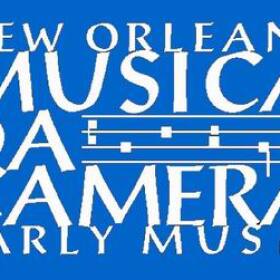
The first Continuum broadcast was in February, 1976, and was hosted by Milton Scheuermann. Thais St. Julien joined him on the second, and the two have continued to co-host the weekly program ever since. During the past 42 years, they’ve produced over 1900 programs! Continuum has been a winner of the Early Music America/Millennium of Music National Radio Competition, and received the KXMS Fine Arts Radio International Award (Classical Radio Programing with Educational Content).
In addition to presenting a variety of recorded music of the middle ages, Renaissance and Baroque from the Musica da Camera’s 4,000 CD collection, the co-hosts have interviewed a number of internationally known performers, including John Reeves White (director of the New York Pro Musica) David Munrow (director of the Early Music Consort of London), Anonymous 4, and members of the Boston Camerata, and Sequentia. The program has also featured recordings of live early music concerts of both Musica da Camera and guest artists.
-
This week Continuum presents A Flemish Feast, featuring music of the Netherlands — including songs and dances that were very popular during the Renaissance.
-
Continuum presents excerpts from the 12th century manuscript, Carmina Burana.
-
Music performed by one of America's leading early music ensembles, The Waverly Consort, is presented on this Continuum.
-
Continuum presents a program focusing on two major works from around the year 1200, The Story of Samson & Delilah and The Labors of Hercules, performed by the acclaimed ensemble Sequentia.
-
This program presents one of the Baroque composer Antonio Caldara's most interesting compositions, the comic chamber opera The Card Game.
-
This Continuum program presents music from the early music English vocal ensemble Gothic Voices .
-
The music of the 12th century philosopher, abbess, architect, polymath and composer, Hildegard of Bingen, is featured on this Continuum.
-
This week's Continuum presents music from two identities: Anonymous IV, an unknown writer of an important treatise of medieval music theory, and Anonymous 4, a contemporary female vocal quartet specializing in medieval music.
-
The King's Delight, The Queen's Delight, and The Ladyes Delight — three early music CDs devoted to different Elizabethan delights are presented on this week's Continuum.
-
This Continuum features the medieval English round song of the mid-13th century, Sumer Is Icumen In.











